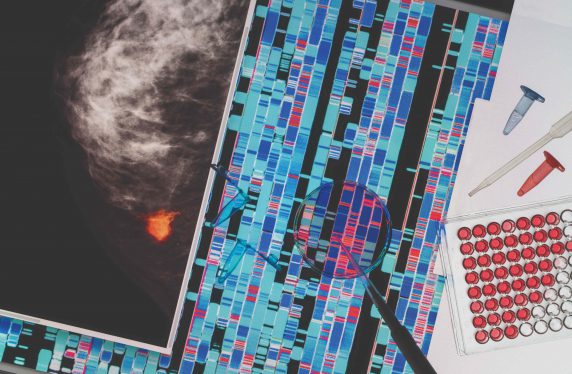CPD: Key questions on breast and ovarian cancer genetics

Learning Objectives
This module will update you on the role of genetics in breast and ovarian cancer, including:
- Taking a genetic history
- Follow up for those in families with a known pathogenic variant
- When and how to refer patients for genetic testing
- Contraception in women at high risk of cancer
Author
Dr Marc Tischkowitz is a reader and consultant in medical genetics at the University of Cambridge and East Anglian Medical Genetic Service
When clarifying a family history, what areas should the GP explore? How important is the father’s side of the family?
There are a few key questions that can give an idea of whether family history needs to be explored further:
- Has anyone on either side of your family had breast or ovarian cancer?
- Has anyone been diagnosed with breast cancer under 50 years of age or ovarian cancer at any age?
- How big is your family? How many men and women are in the family?
- (Where appropriate) is there any Ashkenazi Jewish ancestry?
These four questions should identify the need for a more detailed investigation is required. It is crucial to ask about the paternal side. All the main cancer susceptibility genes can be passed on by either sex but as men rarely get breast cancer, the history can appear more distant on the male side. The cancer pattern can be masked if there are lots of males in a family, so it is important to ask about the male/female balance. If a woman has a paternal grandmother, aunt or cousins with breast or ovarian cancer this should be taken as seriously as a positive maternal history. Ask for this information directly, as it is often not volunteered. If I were only allowed one key message in this article, it would be always to ask about paternal history.
BRCA1/BRCA2 variants are 10 times more common in those of Ashkenazi Jewish descent, so it is important to ask about this where appropriate.
Click here to read the full article and download your certificate logging 1.5 CPD hours towards revalidation
Not a Pulse Learning member? Click here to join and gain access to over 400 CPD modules
Portfolio careers
What is the right portfolio career for you?

Visit Pulse Reference for details on 140 symptoms, including easily searchable symptoms and categories, offering you a free platform to check symptoms and receive potential diagnoses during consultations.











